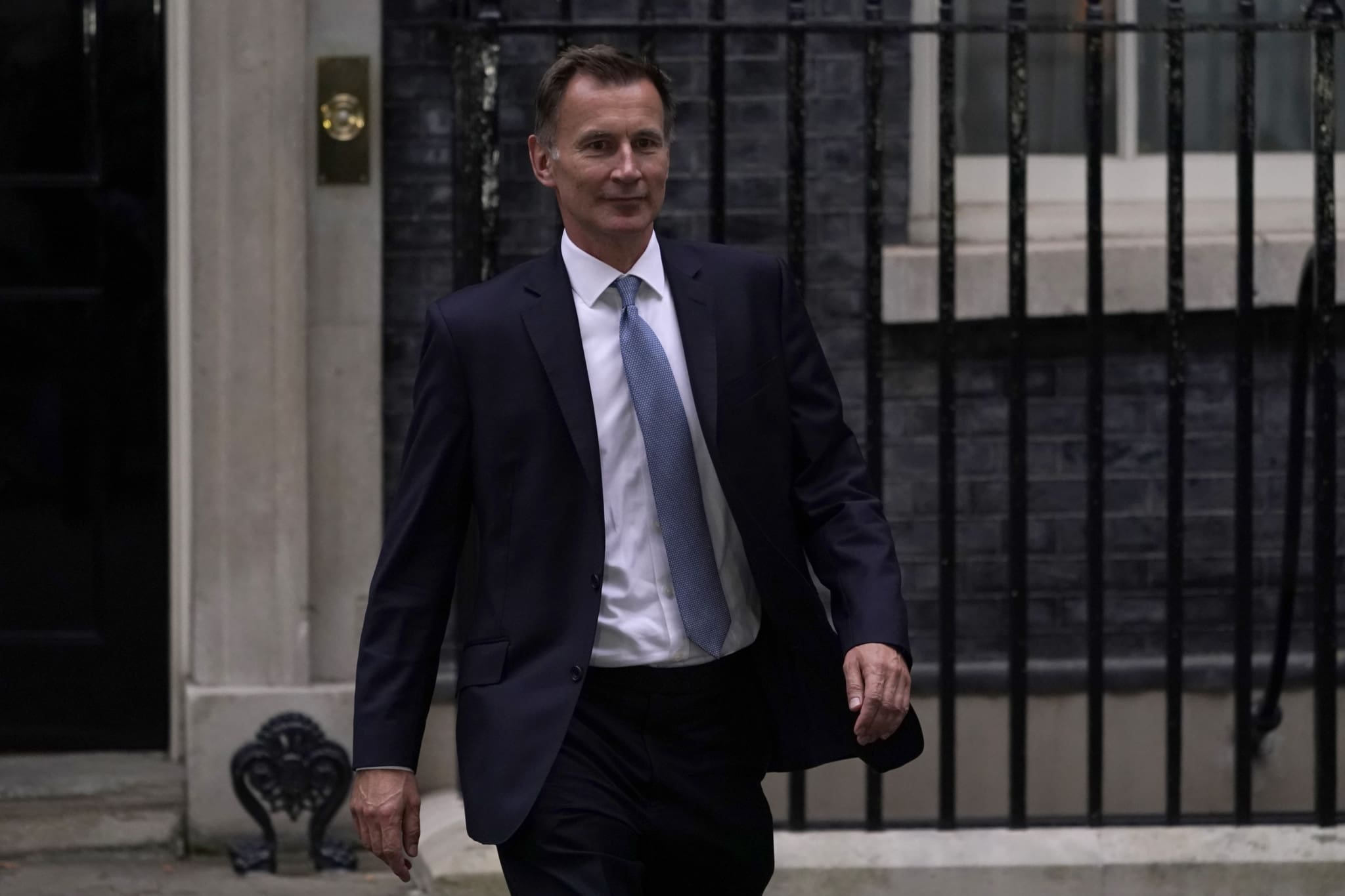Jeremy Hunt has announced that the government will abandon almost the entirety of the new Conservative government’s economic plan only revealed less than a month ago.
In a recorded statement on Monday, the newly appointed U.K. chancellor hammered the final nail in the coffin of his predecessor Kwasi Kwarteng’s plan for tax cuts to boost economic growth, instead opting for extra tax hikes and a reduction in public spending.
As reported by various media outlets, including the Times newspaper’s political editor, Steven Swinford, Hunt will reverse the two-year energy price cap announced last month, instead only pledging to universally cap prices for all consumers until April next year.
Additionally, cuts to the income tax, which would have seen the basic rate of income tax come down from 20 percent to 19 percent, and the abolition of Britain’s highest 45 percent rate for top earners will be scrapped.
The freezing of alcohol duties and corporate tax will also be gone, with the latter expected to rise from 19 percent to 25 percent in April.
A plan to scrap value-added tax (VAT) for international tourists along with a raft of dividend and freelance reforms have also been wiped by the new chancellor.
The move by the government is an attempt to steady the markets and appease vocal opponents to Truss’ long-held economic ideology of cutting taxes to boost economic growth. This comes after considerable pushback from the IMF, the Bank of England, and the mainstream media forced her into a humiliating u-turn and prompted the sacking of long-time ally and friend Kwasi Kwarteng from the Treasury after little more than a month in charge.
The pro-EU Hunt, a failed leadership candidate himself, has been seen by Truss as a fixer to steady a ship that has been sailing close to the wind since she arrived in office.
Reports in Britain suggest that at least four Conservative MPs — Andrew Bridgen, Jamie Wallis, Angela Richardson, and Crispin Blunt — have already submitted letters of no confidence in Truss to the 1922 Committee, the administrative body of the Conservative party.
Furthermore, it is understood that the 1922 Committee is expected to amend its rules preventing a prime minister from facing a vote of no confidence within the first year of taking office, which could see Truss ousted as the leader of the Conservative party within a matter of days.






